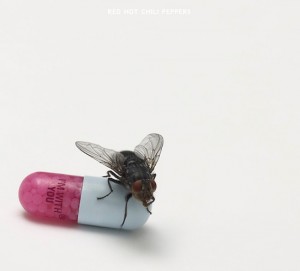
Despite their impressive legacy, Chili Peppers’ newest album, “I’m With You,” is a disappointment to long-time fans of the band. Courtesy of www.fansshare.com.
Few bands have been able to reserve a place in the spotlight of mainstream rock for as long as the Red Hot Chili Peppers have. The Chili Peppers — unlike many of the other such bands — has maintained its status by producing music that’s consistently great. Unfortunately, our high expectations for the group only seem to magnify just how much their latest album release, “I’m With You,” falls flat.
After the departure of Chili Peppers’s lead guitarist and melodic mastermind, John Frusciante, everyone had a sense that something would be missing from “I’m With You.” The question was: What could the band’s former touring backup guitarist and Frusciante’s replacement, Josh Klinghoffer, do to fill the void? After listening through the record, the answer becomes clear — Klinghoffer is central to the downfall of “I’m With You,” with the problems radiate from there.
One might have expected that, in moving from rhythm to lead guitar, Klinghoffer would have adjusted his playing style at least somewhat, or perhaps have even tried to emulate Frusciante’s work.
Strangely, however, most of the songs on the album come off as if they’re missing a lead guitar part altogether, and when put up against Frusciante’s brilliant guitar flourishes from the Chili Peppers of old, that’s a major blow to the band.
A theme of repetition runs through the whole album, and the problem isn’t so much with what Klinghoffer does, but rather with what Frusciante is no longer around to do. Frusciante didn’t just write guitar melodies — he wrote melodies for the entire the songs are formulaic and repetitive, with most of the choruses
consisting of short melodic snippets on loop and slightly differing lyrics. This is especially evident throughout remarkably forgettable midsection of “I’m With You.”
And the buck doesn’t stop with the guitar parts. Frusciante wrote the majority of the lines for Flea — RHCP bassist — and in Frusciante’s absence, it seems that Flea has taken melody duty upon himself. Several of the songs on the record, including “Ethiopia,” “Annie Wants a Baby” and others, start out featuring Flea laying down these melodies, but he’s simply not as diverse and creative a writer as Frusciante, so the song structure gets old fast. In a real Red Hot Chili Peppers rarity, Flea feels distinctly out of his element on most of the album’s tracks.
Of course, if Flea is out of his element, drummer Chad Smith is as well. One the most heralded elements of Smith’s playing is his ability to weave in and out of Flea’s often complex bass lines in a way that is intricate, yet also intuitive. To the dismay of RHCP fans, however, this element of their music has gone AWOL on “I’m With You.” Flea just sounds like he’s trying too damn hard, and Smith seems to be doing little more than keeping time for him.
In the midst of all this, the band is trying to add unexpected elements to songs in an attempt to mask their newest album’s generic structure. In “Did I Let You Know” there is a random breakout of timbales (a drum frequently used in Latin music) and horns, both of which come off as a total afterthought.
Up to this point, I haven’t even mentioned perhaps the most distinctive element of RHCP’s music — Anthony Kiedis’ vocals. It’s upsetting to think that the definitive band of my teenage years is getting older, and Kiedis’ performance on this record kind of throws that fact in the listener’s face. I mean, all you need to do is leaf through pictures in the album booklet to see that RHCP is aging, but hearing the severe reduction in both Kiedis’ range and the energy behind his singing forces you to acknowledge that the rigors of time have taken the greatest musical toll on him out of all the band members.
Kiedis’ aging voice, however, shouldn’t necessarily spell the end for the Chili Peppers. The key lies in a return to the band’s roots, with Kiedis adopting a slight shift away from ballads and toward his classic style of funk rap.
But for Kiedis these days, moving away from pure singing either works really well or comes up completely short. For an example of the latter, look no further than “Factory of Faith.” Here, Kiedis is hardly even being musical — he’s just passionately talking over a verse, and it comes off as a lackluster effort. I must admit, however, that the lyrics are just as guilty on this track as the vocal part itself — they’ve got everything from a stupid baseball analogy to in-your-face sexuality, which, let’s face it, is getting weird coming from a man who’s almost 50.
While the best songs on the album prove that the band can at least still make music at a high level, they have a number of issues to work out before their next release: they need better lyrics, a redefined direction and, for God’s sake, a lead guitarist.
Fleming is a member of the class of 2013.


